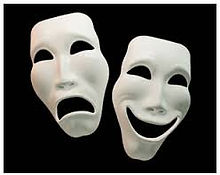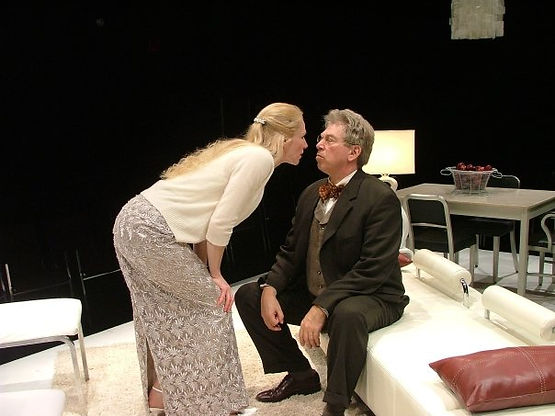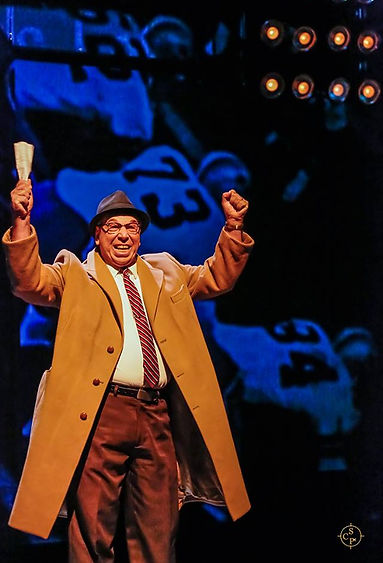Music off?
ART 5


IJOHN WOODSON
John, a thespian for 45 years, well known in theatrical circles for his Shakespearean performances (among many other accolades), gives a purposeful, articulate account of the literacy that inspired him. Starting with the literacy he was drawn to as a child which began his love affair with classic literature, Woodson admits that it remains a focal point of his personal literacy. Now, in order to “create a life onstage,” his work as an actor prompts him to conduct research, beginning with an examination of the author, allowing Woodson to see things as the author sees them; in addition, his study involves the scrutiny of people, specific characters, and the culture of the period; this supplements his art literacy. John’s assertion that language is the nucleus of his literacy echoes author Jaqueline Jones Royster’s (1996) discourse on the importance of voice. Voice, Royster contends, reflects “a central manifestation of subjectivity,” which “as a defining value pays attention dynamically to context, ways of knowing, language abilities and experience, and by doing so it has a consequent potential to deepen, broaden and enrich our interpretive views in dynamic ways as well” (pp.1118, 1117). Therefore, Woodson’s underlining of language as an integral tool for the actor affirms that language helps in the portraying of characters. Indeed the actor’s use of language elevates and clarifies the audience’s perceived interpretation and reveals meaning to the listener.
Finding another voice, Woodson is now involved in visual literacy via painting works of abstract expressionism. He breaks the boundary between the two literacies by explaining that his painting informs his acting and it has resulted in a deeper understanding of himself and his connection to the world. John Woodson has found two powerful voices within himself, and by listening to the voices of others, through literacy, he has found meaning. His journey shows that, for literacy to be effective, it must be germane to the reader. As Royster so beautifully put it, “Voicing at its best is not just well-spoken but also well heard” (p.1126).




